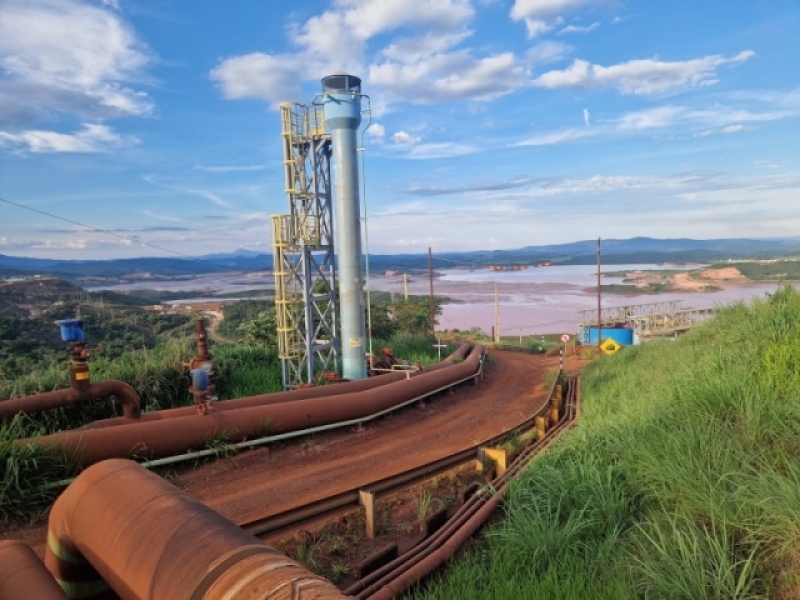- Security Council Divided on United States' Venezuela Action |
- Over 1.53m voters register for postal balloting: Shafiqul Alam |
- Bangladesh Bank to liquidate 9 NBFIs in financial sector reforms |
- Govt Moves to Clear Tk20,000cr Dues to Avoid Summer Outages |
- Maduro Pleads Not Guilty in US Court, Claims Presidency |
Pipe Cleaning Solution is tackling Brazil’s complex sewer network

Steel water pipeline
Monday, 27 January 2025 - Dutch-based inspection and data solutions provider Acquaint is working with Brazilian pipe cleaning company 4Pipe-Hidropig to tackle a number of challenges in the South American country's complex sewer pipeline network.
The Brazilian pipeline challenge
While many countries face multiple challenges in maintaining and upgrading their below ground sewer pipeline network, Brazil provides a particularly challenging scenario.
Pipelines across the country are made of different materials, often with different internal diameters, subject to varying temperatures and pressures, and with no standard depth below the ground surface. The country is vast, with widely different environments and pipeline needs. This provides challenges in both infrastructure and logistics, which includes cleaning the pipes and finding reliable methods to check their condition. Even locating pipelines can be a challenge.
Combining strengths to tackle multiple goals
Of course, these problems provide opportunities, and the combination of 4Pipe-Hidropig's local knowledge and Acquaint's global experience and expertise is helping to provide solutions to some of these challenges.
Mateus Nobeschi, commercial manager of 4Pipe-Hidropig told media: "Within the Brazilian market, the need to gain insight into the condition of their pipelines is growing more than ever. Through our partnership, we can work purposefully and offer valuable solutions that truly help customers move forward."
Erik Driessen, CEO of Acquaint explained why the Brazilian market is full of potential: "The needs in Brazil are similar to those in Europe due to the ageing underground infrastructure, but the scale and context make it unique."
Cleaning tools combined with structure sensors
4Pipe-Hidropig provides pipe cleaning solutions to the Brazilian sewer market. It manufactures pipeline inspection gauges, or PIGs, that are used to clean pipes. The companies will be using a tool called the Acquarius, which is foam PIG, however, the version used by the companies is equipped with a variety of advanced ultrasonic sensors that emit and receive sound waves to detect potential anomalies (such as corrosion, leaching, H₂S damage, and leaks) in the walls or joints of the pipeline.
Further logistical challenges will be tackled by other sensors that can detect the exact location of the pipeline.
Early success in steel water pipeline
Early projects have proved successfully with a one project completed for the Anglo-American mining company, which has a mining site near Belo Horizonte in the Minas Gerais region of Brazil.
The project included the cleaning and inspection of a 21-kilometre long, steer water pipeline with a 30-inch diameter. The pipe takes water from Rio de Peixe to the mining site just outside of Belo Horizonte, the sixth largest city in Brazil.
To prepare for the inspection and to restore the pipe's full flow capacity for the client, 4Pipe-Hidropig carried out a major cleaning operation which removed sediment and corrosion from the length of the pipeline.
For this project, Acquaint supplied the latest version of its Acquarius tool, which was launched and tracked by the 4Pipe-Hidropig team onsite.
Collaboration has a bright future
The successful start to the collaboration between the two companies ensures it is not a one-off project and that the long-term alliance will focus on innovation and growth. For now, the focus will be on Brazil before moving to the surrounding areas, each of which will provide their own challenges.
Driessen added: "We believe this partnership not only strengthens the position of both companies but also makes a valuable contribution to improving Brazil's underground infrastructure."
Not only is 4Pipe-Hidropig continuing to inspect and clean client pipelines using the Acquaint tool, one of the next goal's is to begin local production of the PIGs essential for the Aquarius inspection technology.
Nobeschi concluded: "Together with Acquaint, we can better support our clients and contribute to a sustainable future for the water and sewage sector in Brazil."
- Aqua Tech Newsletter

